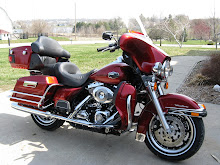While answering the questions posed by college students I was hoping it would spur thoughts or questions by readers. One reader posted a question in the comments and I would like to answer it now.
Anonymous Ask:
I have a question, does your son drink alcohol? I know that most programs say that a recovering addict should not drink alcohol and I was wondering what your thoughts on that were. I know when my son stopped using drugs, he did drink alcohol and then became an alcoholic but I'm not sure that is the case for all recovering addicts.
Yes, my son has an occasional beer at family gatherings and at the lake.
I am aware some addicts simply trade one addiction for another. However, my feelings are an individual that has worked their way through recovery has the responsibility to manage their recovery.
It is fair to voice your concerns if you observe behaviors that go against your personal values but nagging and making it a continuous issue I feel is destructive not just to the person in recovery but also in your relationship. I found the most effective way for a person to see the effects of their own actions does not involve another person telling them. My experience taught me that by providing "opportunities for discovery" results in a person internalizing an issue without words.
I go back to what are the most effective ways for a person understand their own behaviors? What got them to the point of entering recovery? That is what will happen if a person substitutes one substance for another.
The long and short of it is my son's recovery is his to manage. Only he truly knows the darkness in which he lived. He must manage his life in a way not to enter that place again.
If anyone else has questions I would be happy to share my thoughts. You can post them in the comments or feel free to email them to teamplayer@aol.com. I will answer them here on my blog.
Monday, February 29, 2016
Thursday, February 25, 2016
Q & A Time Questions 7-10
Today I am publishing the last 4 questions submitted by college students about our experience with an addicted loved one.
I hope everyone found it interesting what the students ask and how I answered. After today's post I will answer any questions submitted by readers. There is one question in the comment of the first set of questions I will answer and if anyone else has question please feel free to leave them in the comments or e-mail me directly.
____________________________________________________
I hope everyone found it interesting what the students ask and how I answered. After today's post I will answer any questions submitted by readers. There is one question in the comment of the first set of questions I will answer and if anyone else has question please feel free to leave them in the comments or e-mail me directly.
7. What is the hardest part about living with an addict?
The
fear. Every single time the phone rang or doorbell rang there was a twisting
fear inside you scared that this was “the call.”
In
fact the only time his mother and I felt any peace would be when he was in jail
or prison. During that time we knew where he was and that he was being watched.
8. How do you stay positive?
You
must have lifeboats. That is what I call those things that allow you to
remember that you have a life too. I wrote about my lifeboats on my blog. http://parentsofanaddict.blogspot.com/2009/01/lifeboats.html
It’s
like on an airplane when the attendant gives that speech that no one listens
too about oxygen masts. “In case of a loss of cabin pressure an oxygen mask
will drop down. For those of you traveling with small children secure your mask
first and then place the mask on your child.”
If
you do not save yourself first you cannot save others.
May
I take the liberty to change your question slightly? How
do you maintain hope?
Hope
is very dangerous when misplaced. Once I had pretty much lost hope and someone
told me “Where there is life there is hope.” Easy to say and comforting to hear
but then reality is snapped back and you realize your son is suffering from
what can be a fatal disease. Then I thought more about what hope really is as
it relates to life. You can read it here: http://parentsofanaddict.blogspot.com/2011/03/where-there-is-life-there-is-hope.html
There are times you can’t be positive and maintain hope. When we found
out our son was speedballing. (https://en.wikipedia.org/wiki/Speedball_(drug)) This is when his mother
and I began making his funeral preparations; we were just waiting on a body.
Speedballing is usually fatal. If you read about the famous people that die
from drug overdoses, many are from speedballing.
9. Did your son’s addiction affect your family
financially?
Financially
I DO NOT want a final total of monies expended. I do believe as far as direct
dollars it would be in the high five figures or low six figures. Indirect
monies spent on ourselves to try and make us feel better, “retail and beach
therapy”…… I do not want to know the total amount.
My
wife and I had good jobs that paid well. We were fortunate. I know people that
bankrupted themselves dealing with a child’s addiction, lost homes, cars and
retirements.
Addiction
and mental health is not accepted by many as a legitimate health issue, this
includes many insurance companies. Our health insurance at the time mandated no
more that 30 days treatment for addiction or mental health. 30 days of rehab is
accepted by most addiction professionals is not enough. Can you imagine what
would happen if insurance companies only allotted 30 days treatment for cancer,
heart disease or diabetes?
10. Did he show signs of addiction when he was younger?
Not sure how to answer this
question.
He was a normal kid. Played
video games, at five years old he thought he was Michelangelo of The Teenage
Mutant Turtles.
My son was very smart. Honor
rolls all through school. Math was simple, he took pre-calc and trig as a
sophomore in high school, that was the highest math class in our school and he
just breezed through the class.
He played sports, basketball
and football. He was a star on the forensics team and qualified for state.
Most times he was center of
attention. Our high school had about 800 students. He was one of the “cool”
kids everyone wanted to be his friend.
Guess I cannot understand
what signs you are looking for in this question. I am sorry.
Thank you all for allowing me
to share my story with you in this way. It hard and painful to share but it
must be done to battle the monster. Removing the stigma of addiction is the
first step in recovery and educating everyone that addiction can be beat.
Your questions brought
emotional moments back to the surface. Thank you for those painful
remembrances. It keeps me focused on the present and the gift I have in my son
today that we came so close to losing.
If you or other loved ones
have any other questions of a personal nature I’d be happy to discuss them with
you either through e-mail teamplayer@aol.com or by phone (913) 909-2810.
Sincerely,
Ron Grover
Wednesday, February 24, 2016
Q & A Time Questions 3-6
Yesterday I posted a couple of the questions sent to me by college students. Today I am going to continue with the list of questions and my answers.
3. Do you feel as though there was anything you could have
done to prevent his addiction?
With
this question you really know how to make a parent feel bad.
Every parent of an
addict struggles with this every day. What could I have done, what did I miss?
Even today this is the question that haunts me. In Al-Anon they teach the 3
C’s. You didn’t cause it, you can’t control it, and you can’t cure it. It’s
easy to say, catchy and very hard to accept.
I’ve
been asked this question many times in many forms. After a lot of reflection I
have finally come to peace with my struggle in this manner, I wrote a blog post
about it that might be appropriate. Here is a link. http://parentsofanaddict.blogspot.com/2013/04/what-do-i-wish-i-had-done.html
4. Did you seek therapy to cope with his addiction?
We
sought many forms of therapy. We went to family counseling with psychologists.
We attended Nar-Anon, NA, AA and Al-Anon meetings trying to learn from others.
I actually went a drug rehab and was invited to take part in all activities
with addicts and alcoholics for four days. The drug rehab was an enlightening
experience but it still wasn’t what I needed.
What
helped me most when I was at the end of my rope was in January 2009 I began
writing my blog, “An Addict In Our Son’s Bedroom”. I am not a professional writer; I’m not even
a good writer. I just began writing anonymously to chronicle my experiences.
People began reading and commenting. I wrote more and more people commented.
The blog and the commenters became my therapist, counselor and therapy. Sharing my experiences and
reading other blogs about other parents experiences provided me the outlet and
learning I needed.
5. How is your son able to stay clean now?
Truthfully
my son does not like talking about his time of active addiction. I respect him,
his recovery is his recovery, and my recovery is my recovery.
From
observation I believe a key component in his recovery and staying clean is his
son. He has a four-year-old son and from my perspective he lives for that boy.
He is the center of his life.
6. How does it feel to help someone who is intentionally harming
his body?
Helplessness.
There
is emptiness and frustration inside that is impossible to describe. I am a “fixer”
but I couldn’t fix addiction.
I
am a simple guy. Many times I speak in analogies and scenarios. This is a time
for one. Imagine yourself as the father of a son. Your son is standing on the
railroad tracks and a train is barreling down the tracks towards him. He hears
nothing. You begin running towards the tracks as hard as you can and arrive in
time to knock him from the tracks but the train hits you. That’s what fathers
do. We give our life to save our child. With addiction it doesn’t matter. My
son would be standing on another set of tracks the next day.
The
frustration got so great one day I told my son to get his stuff and put that
shit in my arm so I could enter his world and drag him out of it. His response
was he would never do something that bad to anyone.
Tuesday, February 23, 2016
Q & A Time
A couple or three weeks ago a college professor, Susan Winslow from an small college east of Los Angeles ask me if I could speak to her classes. Susan's classes had been studying drugs and addiction and had been reading my blog. Los Angeles is a little far for me to travel to speak to students and as with most institutions of learning funds are tight and they couldn't pick up expenses so I thought of a compromise. I ask the professor if as a class they would be interested in compiling a list of questions that I could answer and I would make myself available by phone or FaceTime if they wanted.
Last week I received a list of 10 questions from her classes. That very morning I fired off answers. Susan replied that they would be discussing the list and my answers this Thursday.
I asked Susan if it would be OK to share these questions on my blog. Her response was of course, please share them.
Over the next few days I will share all the questions. Probably a couple per day, depending on the length of my answer, some a bit wordy. But of course regular readers would expect that in my writing.
Most importantly I would love for you all to share how you might have answered or if you think my answer was complete BS share that too.
Prior to answering the questions I wanted to make sure the students knew they were not talking to a professional but merely a dad that had lived through the experience of an addicted loved one.
Last week I received a list of 10 questions from her classes. That very morning I fired off answers. Susan replied that they would be discussing the list and my answers this Thursday.
I asked Susan if it would be OK to share these questions on my blog. Her response was of course, please share them.
Over the next few days I will share all the questions. Probably a couple per day, depending on the length of my answer, some a bit wordy. But of course regular readers would expect that in my writing.
Most importantly I would love for you all to share how you might have answered or if you think my answer was complete BS share that too.
Prior to answering the questions I wanted to make sure the students knew they were not talking to a professional but merely a dad that had lived through the experience of an addicted loved one.
First
of all I want to qualify my answers with the fact that I am not an addiction
specialist, counselor, teacher or any other professional in the field of
addiction. I am merely the parent of an addict that lived the experience of a
son addicted to drugs for seven years. My knowledge in this subject comes from
experience and reading. Anything I answer to your questions is borne of my
experience and does not in any way construe expert or professional counsel in
this subject. Just call me Dad; I am no different than your fathers and the
millions of other fathers out there that would love their son through a
terrible disease.
1. Do you think your son’s addiction has to do with his
environment, or is it a disease?
This is like two questions in one. I am going to take liberties with this and answer it
in two parts.
I
certainly believe environment can influence experimentation with drugs and
alcohol. However, I will not accept that environment is determining factor in
the use of drugs. In my experience I have met addicts from rich and poor homes,
religious and non-religious homes, broken homes and with married parents where
both parents are in the home. Addiction does not discriminate; it is uniquely
individual just as any other disease.
I
do believe experimentation with drugs can strongly be influenced in peer
relationships. What people perceive to be an accepted norm can become an
influencer in choices and behavior. In the beginning experimentation or using
drugs may be a choice, it becomes a disease.
Addiction
is a disease. I struggled with this idea mightily for five years. I read and
knew about the physiological changes in an addict’s brain and body. I’d seen
pictures of an addicted brain and non-addict brain. I could compare and see the
physical differences. Personally I couldn’t accept the disease model. In my
mind, he made a choice to take drugs, simply make a choice to stop taking
drugs.
I
didn’t “get” it until one very bad day. I saw needles in our son’s room. We
argued, screamed and cussed at each other for one hour. Fighting literally for
a full hour at the very top of my emotions. Exhausted we both went downstairs
and sat at the kitchen table. With my head in my hands and crying I begged my
son once again to stop.
He
asked me to play a game with him. He asked me to hold my breath as long as I possibly
could hold my breath. During that time he said he would not think about drugs,
getting drugs, using drugs, how drugs made him feel. He told me that I would
win the game every time. He began to cry and begged me for help. He said he
couldn’t even sleep in peace, he dreamed about and had nightmares about drugs.
At
that very moment in time I understood. It was my light bulb moment. My son
needed drugs as much as I needed oxygen. Simply asking him to stop would be as
effective as asking me to simply stop breathing. That was when I internalized
and accepted the disease model of addiction.
2. What was your first reaction when you found out your
son had an addiction?
Denial,
denial, denial and oh, did I mention denial.
It’s
just a little weed, boys will be boys.
Our
first real acceptance that this was a problem was when the phone rang at
11:30PM while we were asleep. It was Overland Park Regional Hospital emergency
room calling to inquire about our son. A young man without identification was
pushed out of the backseat of a car onto the emergency entrance sidewalk
unconscious and not breathing. The only thing on him was a book of checks with
our name.
We
were told that if this might be our son we should come as soon as possible.
When we arrived he had been given Narcan and was conscious. This was really our
first realization that our son was an addict.
Subscribe to:
Comments (Atom)











